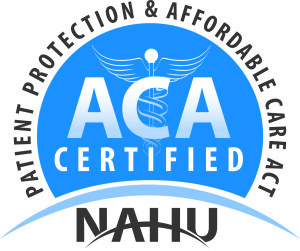A PRIMER ON WHOLE LIFE AND UNIVERSAL LIFE INSURANCE
 Shopping for life insurance, especially cash-value life insurance, uncovers an abundance of misinformation on the World Wide Web. Generally, whole life insurance and universal life insurance are the most common kinds of cash-value life insurance policies that are discussed. Each of these offers insurance protection that is payable at your death to your named beneficiary.
Shopping for life insurance, especially cash-value life insurance, uncovers an abundance of misinformation on the World Wide Web. Generally, whole life insurance and universal life insurance are the most common kinds of cash-value life insurance policies that are discussed. Each of these offers insurance protection that is payable at your death to your named beneficiary.
There are, however, some real differences in how the insurer allocates premiums; how death benefit is determined; how the two different policies accumulate value and calculate growth; how the insurance company charges premium, determines death benefit, and guarantees cash value.
Whole Life Insurance
Whole life insurance is the product that is the foundation for America’s life insurance industry. Americans on every level have relied on whole life insurance as a part of their financial framework since the middle of the 19th century.
During the last third of the 20th century, whole life insurance was either ignored or maligned by the investment community. However, in the early 21st century, it is poking its head above the rubble and becoming recognized as being more powerful than ever.
In today’s volatile economy, Americans in every conceivable occupation and business have come to rely on the power, flexibility, and versatility of whole life insurance — especially participating whole life insurance.
The primary reason for that relates to the guarantees that are essential to whole life insurance policies. These guarantees let you:
- Be the bank when you need to finance major purchases, which will allow you to reduce and eliminate debt to banks, credit cards, charge cards, and so on.
- Save for retirement and create secure income that you will not outlive and that is there whether you work or not
- Build an emergency fund that won’t run out with a 90-day layoff.
- Support a legacy of wealth and wisdom to pay forward.
Whole life insurance policies gain their strength from their guarantees:
- The premium remains level throughout your lifetime.
- The death benefit of the basic policy stays level for as long as you keep the policy in-force.
- The premium is guaranteed to remain level.
- Cash values accumulate in the policy at a guaranteed rate.
- Only the policy owner — not the insurer — can access your cash values.
- Cash value accumulations in whole life contracts cannot go down unless the policy owner acts to surrender all or part of them in accordance with the terms of the contract.
In addition, mutual insurers that issue participating whole life policies, promise to pay any excess earnings as tax-free dividends. These dividends can:
- Be paid in cash
- Accumulate in a separate account at the insurance company at a guaranteed interest rate — the interest is taxable
- Purchase extra death benefit (without providing evidence of insurabiliy), such as:
- Term insurance
- Additional paid-up whole life insurance (which accumulates additional guaranteed cash values and tax free dividends). This is the most common option.
Finally, the participating whole life insurance policies of today offer riders that give additional power, flexibility, and versatility to whole life policies. These options can’t be replicated in any other life insurance contract.
When an insurance agent and advisor properly designs a whole life insurance program, s/he assures the policy owner that, no matter what surprises life delivers, the policy owner can access all if the policy’s living benefits, never lose any money, and pay forward a legacy of both wealth and wisdom.
Universal Life Insurance: Evolution?
The first universal life (UL) insurance policies were created just 31 years ago in 1979 by EF Hutton, a failed investment company. These policies were intended to compete with participating whole life insurance policies, which dominated the market at that time.
The guarantees offered by universal life insurance are significantly different from those offered by whole life insurance policies.
UL policies essentially unbundled the whole life insurance contract and drastically changed the guarantees that the insurance company that issues a UL policy collects the following charges from the premium paid by the policy owner:
- Charges for what is called mortality, which is the cost the insurer incurs to guarantee the death benefit
- Charges for administrative expenses the insurer pays when issuing, managing and maintaining the policy. The insurer guarantees that both of these charges will not exceed a certain amount. The maximum amount is specified in the policy, and is normally somewhat higher than the current rate the insurer is charging and that it uses to create the current assumption sales illustrations. The NAIC requires that the maximum charges be illustrated along with the currently assumed rates.
A minimal rate of return on cash values that accumulate in UL policies is also guaranteed. This rate may result from simple interest being paid on accumulations.
In indexed UL (IUL or EIUL) a percentage of the current cash values being added is based on a link to an index such as the Standard & Poor’s 500.
Variable UL policies pay or deduct from the accumulated values based on the performance of underlying investments, which are chosen by the policy owner. However, the insurer that issues the UL policy does not guarantee the accumulation of cash value in the policy. The above-mentioned charges for mortality and administration, the poor performance of the insurance companies investments, failure of the index to grow, or losses incurred by the underlying investments may erode or even reduce the accumulations zero.
Many current UL policies offer what is called a secondary guarantee. A secondary guarantee means that as long as the policy owner continues to pay a specified premium, beneficiaries will receive the death benefit even if there are no cash values or the insurer’s costs exceed their maximum.
In an effort to replicate the features of whole life insurance, UL has some options. Paid-up additions option and riders on whole life insurance allow the policy owner to add death benefit regardless of health. UL policies offer the following benefits:
- When the original application is submitted, an applicant can opt to purchase a death benefit equal to the basic amount of the policy, plus an extra amount equal to the cash value in the policy.
- The policy owner can add more death benefit to an existing UL policy by proving good health and paying extra premium.
- Other innovative ways to increase the death benefit are becoming available with the adoption of the 2001 CSO Tables.
In addition, UL policies have built in language that lets policy owners reduce their death benefit and/or their premium on existing policies without having to issue a new policy. Whole life insurance policies allow policy owners to surrender portions of their death benefit and accumulated cash values without surrendering the entire policy, and also allow the use of dividends and current cash values to reduce premiums.
Policy owners of UL policies can change premium payment amounts from month to month. This is a more flexible option than is available with whole life insurance plans.
Both universal life Insurance and whole life insurance provide benefits and options that are unique and beneficial depending on your needs. Your best choice will become clear by consulting with a qualified insurance and financial advisor that understands and appreciates both kinds of policies.
Disclaimer
Data and information is provided for informational purposes only, and is not intended for any other commercial or non-commercial purposes. Neither David M. Kulawiak, Inc. nor any of its data or content providers shall be liable for any errors or delays in the content, or for any actions taken in reliance thereon. By accessing our web site, a user agrees not to redistribute the information found therein. We provide customized links to select companies for your convenience only. We do not endorse or recommend the services of any company. The company you select is solely responsible for its services to you, the user. We shall not be liable for any damages or costs of any type arising out of or in any way connected with your use of our services.




